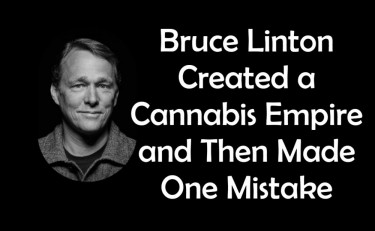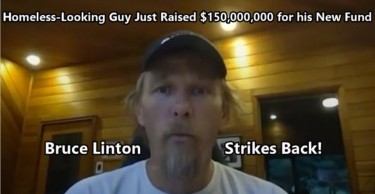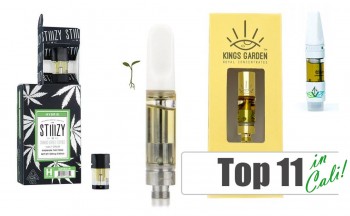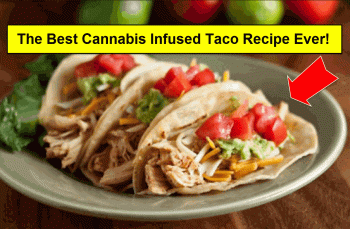Bruce Linton, former CEO of Canopy Growth, and Curt Dalton, founder of Cannabis.net, have had some pretty spirited debates on a variety of cannabis topics including the value of branding, the biggest mistake at Canopy Growth, is hemp going to be huge, and the value of mushrooms and medicine. The Cannabis 10x show decided to bring Curt and Bruce out for one more go around of spirited fun and debate, you can watch it all here! The full transcript is below as well!
Bruce Linton - This Was My Biggest Mistake at Canopy Growth from CannabisNet on Vimeo.
Curt Dalton:
Oh stop, you old man. You got to turn the mic on, dad.
Bruce Linton:
It's the phrase of 2020, "You're on mute."
Bruce Linton:
Yep.
Holly:
Right?
Speaker 3:
Totally. All right, so you guys are going to go head-to-head here and duke it out, right?
Holly:
Head-to-head?
Curt Dalton:
I don't know, Holly, if you knew this, there's a new joke going around Canada, have you heard it yet?
Holly:
No, what?
Curt Dalton:
Bruce Linton walks underneath his porch and sees a ladder, a wheelbarrow and $150 million dollars and he's the only guy that says, "Oh, what am I going to do with that ladder and wheelbarrow?"
Curt Dalton:
Bruce, tell us about Ruckify, because this crew may not know what-
Holly:
We're going to be ourselves and take our video off, so you can be nice and irreverent and I don't have to be a part of it, and have fun.
Curt Dalton:
So, tell the world that doesn't know your non-cannabis side, what is Ruckify and what are you up to?
Bruce Linton:
So, that ladder and wheelbarrow are under the porch because you use both of them once a year, and then you own them and store them and the sad part about that is, both of those are made out of stuff we dig out of the earth, we put a lot of energy into them, and we probably ship the raw materials over to China. They make it into a wheelbarrow or a ladder, they ship it back wrapped in plastic and styrofoam. It goes to Home Depot, you buy it, use it, and store it. Ruckify's point is, "Why don't you monetize it?"
Bruce Linton:
It's good for your income and it's good for the earth. So the idea is, and it's working very well, is put all these objects up on Ruckify and set a price and people It's peer-to-peer lending, renting. It's been just taking off, he'd say, "Well, how the heck can it take off during COVID, man, we're not even supposed to interact?"
Bruce Linton:
One of the things we did is, when COVID hit, we were preparing to launch in Austin. After about a week of COVID, COVID, COVID, we said, "I don't think we can launch."
Bruce Linton:
We came back and we had about two days where we felt extremely sad for ourselves. "Oh, woe are we, we are screwed."
Bruce Linton:
Then we said, "How do we make ourselves not screwed?"
Bruce Linton:
What struck us is, everybody was talking about buying fitness equipment, because all the gyms were closed, and so our thought was, "If you can't go to the gym, why can't the gym come to you? Why can't we Ruckify all the weights, treadmills, cycles?"
Bruce Linton:
So, what we did is, because Ruckify ensures everything, delivers everything, and has a daily, weekly, monthly charge rate, you put it in, we can actually conduct it and we keep about 10% of the transaction. We Ruckify gyms out from Austin, Texas to Ottawa, and that started getting a lot of people talking about us, and then we said, "Well, how can we be helpful to people?"
Bruce Linton:
Because everyone's going to have to do this homeschooling stuff and if you're not sort of well-off, sometimes the only way that you get access to the internet is that mom's cell phone. Well, what if mom's got three kids in an apartment and they're all supposed to be doing homeschool with this web stuff?
Bruce Linton:
We started taking anything that was in your desk drawer, an old iPad, whatever, and connecting it, without charging and making any money, zero money to us. But connecting it between your iPad, old one in the desk drawer, and mom on the 14th floor with the three kids that needs it. We did that all over the place and we started to gain traction.
Bruce Linton:
Ruckify is a really... I think it's a thoughtful way to monetize. We have had one lady whose husband's business shut down on COVID, she took all the dumb stuff that he bought, as she phrased it, and had in the garage, and she's been Ruckifying it. Over the last 60 days, she made over $10,000 dollars Ruckifying it.
Curt Dalton:
Wow.
Bruce Linton:
Yeah, so you know what that does? Makes him losing his job not so bad, and she's no longer pissed off that he spent all the prior money buying stuff to put it in the garage, everything from paddleboards to rototillers.
Curt Dalton:
Gotcha. Now this cannabis crowd, obviously Canopy Growth, part of your history and an article I wrote said, "Bruce Linton built a cannabis empire, but he made one mistake and that was the communication part." [inaudible 00:04:00]
(Click here to read the one mistake Bruce Linton made at Canopy opinion)
Curt Dalton:
Which you told me, "That's not true, Curt."
Curt Dalton:
Looking back on it now that you're 40 pounds lighter and literally half the man you used to be, what was your biggest mistake at Canopy? Looking back at this point of your life?
Bruce Linton:
Well, I mean several. You and I have talked often about this, I made several. At the beginning, the first mistake I made was that no one thought it was a good idea, and so the qualifying criteria for the first few people that joined was: they would. Imagine going to a job interview, all you have to do is say yes, and you have the job. I didn't necessarily start off with all the best plan [inaudible 00:00:04:34].
Bruce Linton:
Then as we went down the path, I would say we made a couple of mistakes about, how do we sort expand one country or another. But when it came to the end, if someone wants to give you US$4 billion dollars for about 27% of a six-year-old company, but the only final criteria is that you have to agree they control the board, I still look at it and think that if I wanted to keep my job more than I wanted that cash in the company, then I probably was not well suited for my job.
Bruce Linton:
I do feel very badly in these times, when they're laying people off, I would have had to lay people off, the world didn't turn out the way, everything you think it's going to be. But I would sooner be there to do that, than to have not been there to do that.
Curt Dalton:
Gotcha. We had an article go up today talking about, people are really focusing on legalization as either a big threat or a big plus and Matthew talked about it. I see this new delivery license with buying at wholesale, selling at retail, as the biggest threat to the establishment. How [inaudible 00:05:40] Gage do you see this? Where are you at on the threats and how you have to change your business. If these licenses go national.
Bruce Linton:
So what, what starts to happen right, is that you have to have production initially so that you can actually supply yourself. But then over time, it's like a triangle, right? And productions at the bottom, and you build your extraction, your product making, and then you have your retail and brands. But over time, the triangle kind of like, it turns upside down, right? It goes like, and all you have at the bottom are your points of sale, your brands and your quality. And you almost go to an asset light mode where that, that production asset, isn't really an asset. It's almost like a net neutral or a liability. And so part of the reason I like Gage is they've done a terrific job on focusing on even the stuff they don't produce themselves. It's how you make sure that it's quality, how you package it, how you have a point of sale environment that makes people come in and you see that in their sales numbers, man, their average basket size is like almost $200 bucks.
Bruce Linton:
And it is like a constant busy environment. And it's because people prefer the quality of the product and the way it's presented. So it kind of, it means that you have to great quality, but it means that you could actually shift where you get your assets or inputs from. If I looked at Canada now, and I look at a lot of these other places, the asset light mode makes total sense to me. Like if you're in Canada, now, what we want to buy is about a 20,000 square foot facility where you process other people's products into finished goods that people line up and buy.
Curt Dalton:
Do you think the moat that's being given to the social equity and economic and power candidates three-year exclusive. And the margin flexibility and power to buy at such a low price and sell it much higher price. That's not a threat to brick and mortar.
Bruce Linton:
It is. At the end of the day, there's a lot of things we've got to fix out. And if there's a little bit extra giving up in one corner, so that wrongs that exist are a bit more neutralized. I can live with it. You know, how many times have we talked where I still do what you want and that, but changing the color or sex of one rich person versus making it. So the equity is broadly distributed through every country that accompany that everybody gets profit sharing or margin sort of access through, call it options. I think that's still the most meaningful thing. And I don't know why some States haven't said already that if you get a license and you get a, I'll call it an advantage granted to you, you have to cascade that advantage into your workforce and you have to make it meaningful.
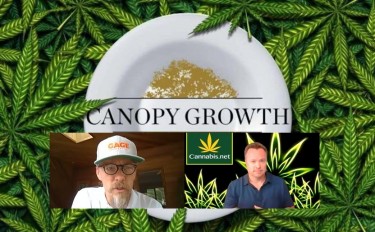
Bruce Linton:
And they could put proportional ratios of the top person. Can't take 90% of this. They can't have more than 10 times the equity grant that the bottom person has now, they may have found their shares and stuff. If you have found your shares, that's great. Like I took zero options for the first, I think three or four years when we started Canopy, wouldn't take any. He said, Whoa, what's wrong with you? Well, money made me a bit more money, but what I did is I put them in everybody's hands. And the day I was fired, there were over 200 people that were millionaires for showing up for work. And I can tell you that makes me more meaningful redistribution and equity impact than changing solely the leader.
Curt Dalton:
Yeah. And to be clear, we mentioned in that article, we're not saying that the licensees who are getting these aren't historically should have them or through economics. We're just saying, what is this type of license do to the structure? You mentioned that branding, and there's a lot of branding on this particular cannabis, 10 X show. I get nervous. You and I disagree on this. I think it's a commodity. I think branding's only on a Gary. You so far, is this a sign of margin compression where people are now really hitting branding, branding, branding, because the margins are coming down, it's a flower. How do you fight that if you're an engaged? [inaudible 00:09:24]
Bruce Linton:
So I think we kind of agree in some ways. If you put a unique name on something, but in no other way, it's differentiated. You do have a marginal benefit. Like people might remember the name and the other one, they might forget, but it's [inaudible 00:09:50] . But if what you do is you put a dumb name, like a stupid name on something that's fundamentally amazing and differentiated. It actually makes people come back.
Bruce Linton:
Like "Google" is not a particularly super great brand name. And it actually, no one ever heard the word Google before they were told, use Google, you can find more things on the web, but because the underlying capability of Google was super amazing relative to everyone else you use Google.
Bruce Linton:
And so if you think about in cannabis, if all you're trying to do is differentiate on a commodity, we using a brand, you have a marginal advantage. But if what you try to do is create materially better products, which is so how do we do that?
Bruce Linton:
Sometimes it's science, right? It's how do we fractionated? So that it's actually a smaller than nano and has a really rapid high bioavailability. Maybe it's how you manage the taste. Some of the things I've been seeing in the Hemp protein space, there's super smart ways to actually make it. So it tastes amazing as a Hemp protein, not kind of weedy, like amazing. And so that I think is worth having a brand.
Curt Dalton:
You'll let it be ready to the next question. I know we're running out of time, but you have $150 million dollars. You're trying to make Hemp in the spotlight, at least in North America. How's it going? What are you looking at?
Bruce Linton:
So it's going fast. We got that done in May, we're in September. We laid out about 224 categories where we think hemp can dramatically impact the existing, whether it's hydrocarbons or other fibers. And we have really good stuff in two of the portfolio areas, once food to farming, we have another, which is sustainable industrial. I like what we see say, we're going to be an unusual spec, the smart specs, these what smart specs to suspects, a special purpose acquisition company. You got to use 80% of the value minimum. What they'll typically do is say to an $800 or $900 or a million billion dollars company, would you like to be public? And you can have my $150 million bucks and then founders of that makes them value. But I don't think that's very interesting because then you get, you don't have anything to do.
Bruce Linton:
So what we're doing is instead of trying to give $150 million to somebody, wants to get public. What we're trying to do is use $150 million to buy a four or five, six things, put them together and build a billion dollar company. And that [00:12:12] you could have a lot of organic growth. You could become really disruptive to anything from hydrocarbons to cotton. And so I really like how it's going. I really liked the team. It's the only weird part is doing due diligence where it's like, could you hold your zoom camera up so I can see the machine better? Right? Cause you can't go anywhere. [00:12:34] the plants in Italy. Oh, well, I don't know. There was a little wild going to Italy. It wasn't, suggested to be the best idea and then neither of the places. So [00:12:42] is more like this interaction than it is actually going to see things
Curt Dalton:
Before they cut us off. Hemp is obviously thrown out there as a, it's going to be cars, buildings, hydrocarbons, cotton. What is most excited about happening
Curt Dalton:
With that kind of checkbook? What do you really get excited when you see him for fill in the blank?
Bruce Linton:
Well, you got to always read the room and the room right now is saying, COVID I want shorter supply chains and I want more sustainable, more news guides. And so what's exciting now is because of COVID. I think people are very much more tuned into the idea that can we actually make major parts of our car without having to go to other kinds of needs to get the inputs. Can we actually put really sustainable food on our table that tastes great. And it becomes the third rotational crop in America. And we have that. So what's most exciting to me, the fact that I think the US market is screaming for things produced in America, which have a two stop supply chain farmer's field, our process conversion into the factory becomes a good, and it's at your house. You're wearing it, driving to eat. And then, and so I think COVID has been like a super-duper wake up call to why do we have these crazy long supply chains that depend on foreign jurisdiction?
Curt Dalton:
All right. So if you have a wheelbarrow, a ladder or you're growing hemp call Bruce.
Bruce Linton:
Great.
Speaker 3:
Thank you guys.
Bruce Linton:
Yeah.
Speaker 3:
Glad to hear your updates. Bruce sounds like you're doing really well.
Bruce Linton:
Oh, got to keep busy. Otherwise, I don't [inaudible 00:14:09] kind of thing can happen for sure with me.
Holly:
I don't want to know. That's it, we are done.
Curt Dalton:
Thank you.
Speaker 3:
All right, guys.
Holly:
Round three, I think we are going to start with...
Speaker 3:
We have immortality.
Speaker 3:
Oh, [inaudible 00:14:31]NUG is a great vertically integrated company out in California in retail.
Holly:
I see him, but I can't hear him.
Speaker 3:
Come on and tell us about your dispensary's and your expansion plans. Grand presses.
Speaker 4:
There we go. Can you hear me and see the screen?
Speaker 3:
We can hear you and see the screen.
Speaker 4:
Oh, okay.
Speaker 4:
Here we go. Thank you for the opportunity here. I'm here to talk about my company NUG. We are an Award-winning vertically integrated California Cannabis Company, and we are ready for growth. A lot of people here, next button, people ask me often why California? It's a big headache. There's a lot of taxes and just a lot of challenges operating in this environment. But if you look in the bottom right hand corner here, forget about the other numbers for now. But bottom right-hand corner, California represents about a $12 billion dollar annual opportunity in the cannabis market. So that's a huge opportunity.
Speaker 4:
So about NUG, we are a vertically integrated cannabis company. We are based in open California, vertically integrated. You've heard that term quite a bit today. It certainly has its benefits and its challenges for us. Vertically integration looks like this. We operate fairly large indoor and outdoor cultivation. Our flower products are sold as flowers and also as pre-rolled joints. And they quite often end up in the top 10, even the top 5 best-selling products in California, we operate a large extraction. Hydrocarbon extraction facility has the ability to process the over 1500 pounds of biomass in an eight hour shift. Those products are largely live resin products selling it. Usually in the top five across the States. We also operate manufacturing of Annabelle Apple goods, where we have a line of chocolate.
Bruce Linton - This Was My Biggest Mistake at Canopy Growth from CannabisNet on Vimeo.
OTHER BRUCE LINTON STORIES, READ MORE...
DID BRUCE LINTON MAKE ONE BIG MISTAKE AT CANOPY GROWTH?
OR..
BRUCE LINTON HAS $150,000,000 TO BUILD A NEW EMPIRE, LISTEN HERE!
.jpg?width=800)
